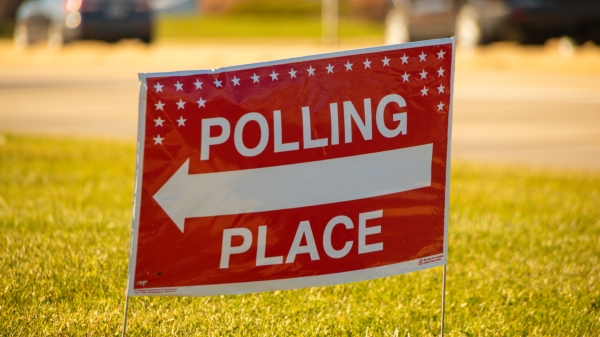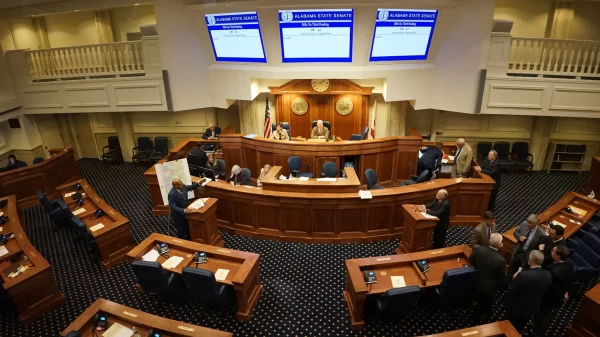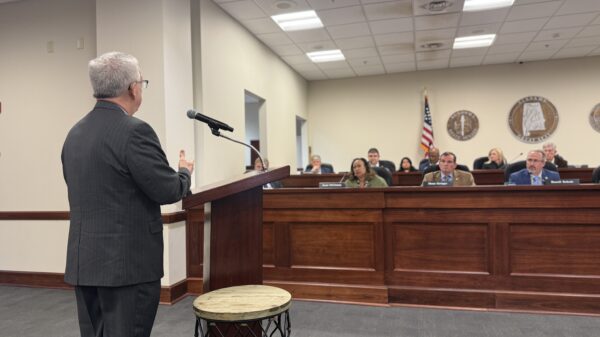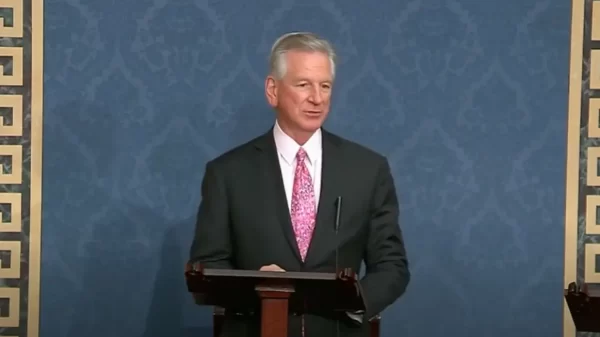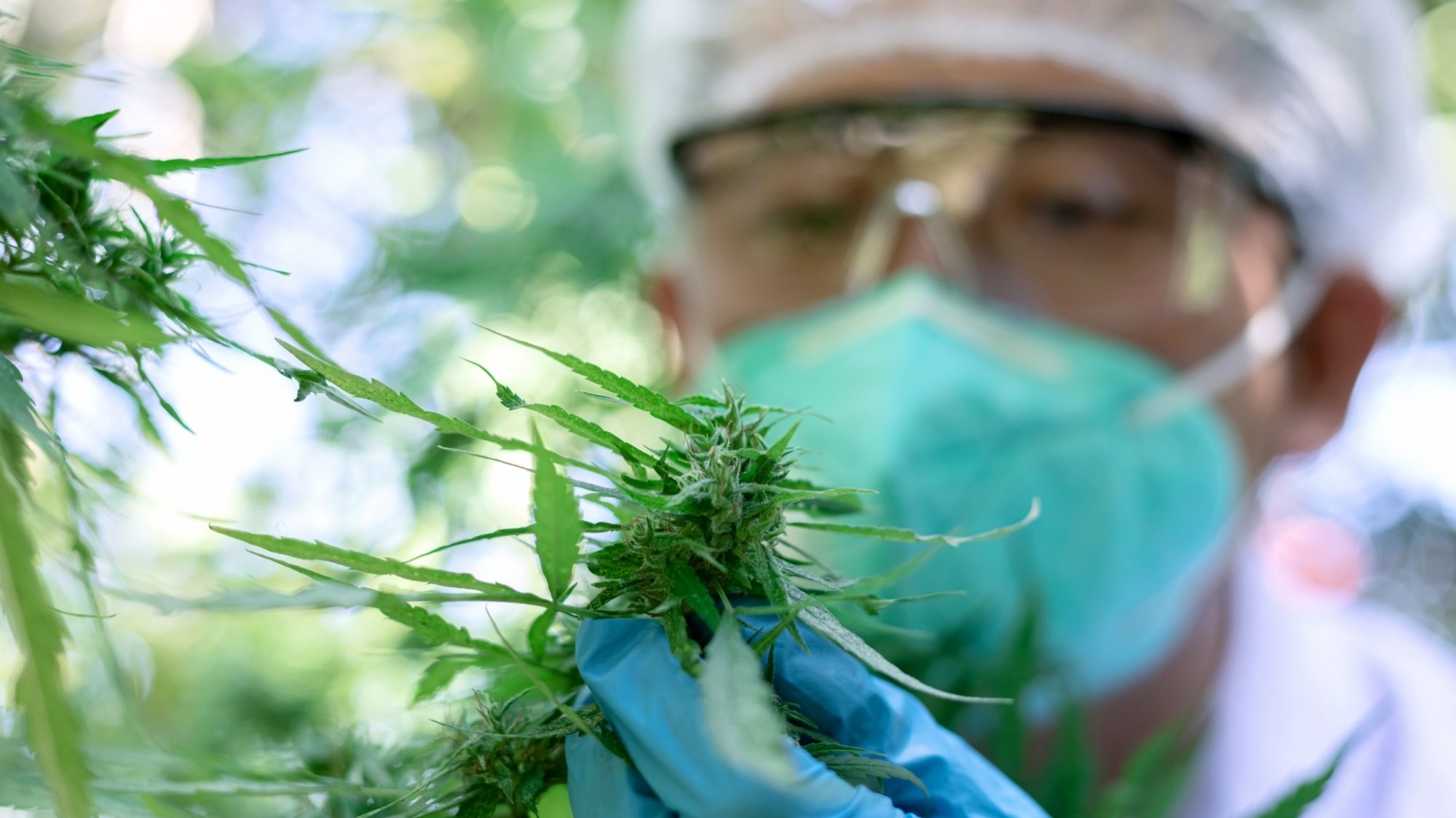Last week, eight members of the Senate Democratic Caucus caved, voting to end the longest government shutdown in American history without securing an extension of Affordable Care Act enhanced premium tax credits from Republicans. Included in that spending bill to reopen the government was a provision added at the last-minute, with no ties to healthcare whatsoever: an effective ban on THC-infused hemp products, nationwide.
The new ban, authored by U.S. Sen. Mitch McConnell, R-KY, looks to close a “loophole” in the 2018 Farm Bill, which until now has allowed for the sale of hemp products including low doses of THC across the country. McConnell was also the author behind the Farm Bill, but has long been a proponent of closing the THC loophole, arguing that it goes against the legislation’s original intent.
McConnell’s new ban is even more restrictive than Alabama’s House Bill 445, the legislation signed into law by Governor Kay Ivey in May which banned smokable hemp products and direct-to-consumer sales in the state while instituting strict THC caps and packaging requirements on other consumable hemp products. Per a Senate Appropriations Committee summary, the new federal ban “prevents the unregulated sale of intoxicating hemp-based or hemp-derived products, including Delta-8, from being sold online, in gas stations, and corner stores, while preserving non-intoxicating CBD and industrial hemp products.”
In its current form, the provision would devastate the $28 billion hemp industry that grew out of the 2018 Farm Bill, effectively banning a vast majority of hemp-based THC products through an exceedingly-low THC cap of 0.4 milligrams per container.
However, there still remains some hope for the hemp industry.
McConnell’s provision was passed with a year-long implementation delay, giving the hemp industry 365 days to pressure Congress into walking back the ban’s sweeping language. According to the U.S. Hemp Roundtable–the industry’s leading trade group–hemp manufacturers plan to encourage Congress to reshape the provision, transforming it from an outright ban into a set of heightened regulations on the industry.
Chris Karazin, founder and CEO of North Carolina-based hemp manufacturer Carolindica, told APR that he and other industry leaders would welcome such regulations.
“What we really need is clear regulation, not prohibition,” Karazin said. “[A ban] is just going to push it to the illegal market because these products will always be around us, whether they’re being bought in stores that ID, and educate, and lab test, or they’re being bought in an alleyway or parking lot, or elsewhere.”
“What we want and what the industry needs–what the government should be working toward instead of this bill–is things like 21-plus federal requirements for hemp… we also all support clear packaging that tells you what you’re buying, QR codes for lab tests that are verifiable through third party labs, people should feel safe and comfortable purchasing these products,” he later added. “Smart regulation is the move and we as an industry, and everybody related to this industry, support legislation that puts safety and science first.”
The same sentiment was expressed by the Alabama Cannabis Coalition, ACC, who issued a press release over the weekend decrying the federal ban.
“The Alabama Cannabis Coalition will not stand by while Congress threatens farmers, businesses, and the safe access that Alabamians depend on,” said ACC leadership. “This legislation was inserted into a must-pass bill to reopen the government, and the people deserve transparency—not backdoor prohibition.”
“The ACC will be joining a united national front of advocates, farmers, industry groups, and consumers to pressure Congress to reverse this harmful language,” the coalition added, calling for “sensible, science-based regulations that ensure public safety while preserving the livelihoods of American farmers and small businesses.”
For those wondering why Congress would introduce a federal hemp ban now, especially given the economic boon that the industry has provided to several states (including Mitch McConnell’s own state of Kentucky), there actually appears to be a rather simple explanation: lobbying.
The hemp ban was only added to the shutdown-ending funding bill after a late lobbying push by trade groups representing large alcohol companies and beer-makers. According to Karazin, many in the alcohol industry view hemp-infused beverages in particular as a threat to their bottom line.
“Last week a bunch of alcohol companies essentially wrote a letter saying they need to close this loophole, and I think it’s pretty safe to connect the dots there that these shelf spaces are– there’s less alcohol being sold there, and you know there’s a lot of data out there about the alcohol side in particular, [showing that] younger generations aren’t drinking like a fish as much as their parents are–that kind of thing,” Karazin explained.
“There’s a path there to assume that maybe hemp has impacted that in some way, but it’s really there’s just different demand trends,” he continued. “But when you see shelf space for alcohol now going to hemp, that’s where most people would think the ‘why now?’ has come into play.”
In addition to pressure from the alcohol industry, a letter sent to Congress on October 24 by a coalition of attorneys general from 39 states and territories demanding a federal crackdown on the Farm Bill loophole also likely influenced the ban.
“We ask Congress to act decisively to clarify the Farm Bill’s definition of hemp to ensure intoxicating THC products are taken off the market,” the AGs stated in the letter. Among the letter’s signatories was Alabama Attorney General Steve Marshall.
For now, the future of the hemp industry will remain hanging in the balance, as industry leaders like Karazin continue to push for regulation over prohibition in hopes that they can reshape the ban before it takes effect in a year’s time.





